Thursday, March 31, 2005
Friday, March 25, 2005
Pictures from Christine s birthday (2203)

Birthday gal, Christine & Me in the lab

It us again

Lay Hong & Me in the weighing lab waiting fer our turn on the spectrophotometer
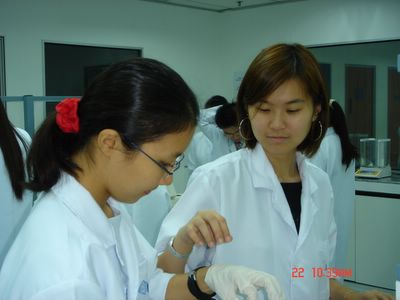
At last its ur turn.......time to b serious
PS: Christine where r ur gloves??? We re dealing wit DNA leh

2203 Chiristine s birthday.....Just taking sum random pics while we re waiting fer our food

Us & Dylan's peace sign
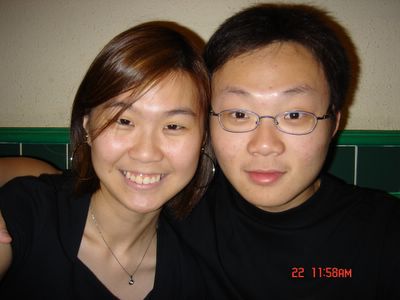
The perfect couple....Christine & Jude
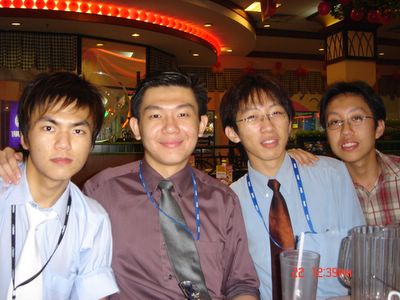
From left: Mike, Dylan, Chun Keat & Desmond

From left: Samantha, Ching Ying, Christine & her birthday card

The Gang
Difference Between Normal Students And Gre Students
GRE STUDENT : Individuals who make their abodes in vitreous edifices would be advised to refrain from catapulting perilous projectiles.
*******************************************************
NORMAL PERSON : Twinkle, twinkle, little star
GRE STUDENT : Scintillate, scintillate, asteroid minim.
*******************************************************
NORMAL PERSON : All that glitters is not gold.
GRE STUDENT: All articles that coruscate with resplendence are not truly auriferous.
*******************************************************
NORMAL PERSON : Beggars are not choosers
GRE STUDENT : Sorting on the part of mendicants must be interdicted.
*******************************************************
NORMAL PERSON : Dead men tell no tales
GRE STUDENT : Male cadavers are incapable of rendering any testimony.
*******************************************************
NORMAL PERSON : Beginner's luck
GRE STUDENT : Neophyte's serendipity.
*******************************************************
NORMAL PERSON : Birds of a feather flock together
GRE STUDENT: Members of an avian species of identical plumage tend to congregate.
*******************************************************
NORMAL PERSON : Beauty is only skin deep
GRE STUDENT : Pulchritude possesses solely cutaneous profundity.
*******************************************************
NORMAL PERSON : Cleanliness is godliness
GRE STUDENT : Freedom from incrustations of grime is contiguous to rectitude.
*******************************************************
NORMAL PERSON : There's no use crying over spilt milk
GRE STUDENT : It is fruitless to become lachrymose of precipitately departed lactile fluid.
*******************************************************
NORMAL PERSON : You can't try to teach an old dog new tricks
GRE STUDENT : It is fruitless to attempt to indoctrinate a superannuated canine with innovative maneuvers.
*******************************************************
NORMAL PERSON : Look before you leap
GRE STUDENT : Surveillance should precede saltation.
*******************************************************
NORMAL PERSON : He who laughs last, laughs best
GRE STUDENT : The person presenting the ultimate cachinnation possesses thereby the optimal cachinnation.
*******************************************************
NORMAL PERSON : All work and no play makes Jack a dull boy.
GRE STUDENT : Exclusive dedication to necessitous chores without interludes of hedonistic diversion renders Jack a hebetudinous fellow.
*******************************************************
NORMAL PERSON : Where there's smoke, there's fire!
GRE STUDENT : Where there are visible vapours having their provenance in ignited carbonaceous materials, there is conflagration
*******************************************************
Monday, March 21, 2005
Random jokes on Equinox day......
A ten-year-old boy was failing math. His parents tried everything from tutors to hypnosis, but to no avail. Finally, at the insistence of a family friend, they decided to enroll their son in a private Catholic school.
After the first day, the boy's parents were surprised when he walked in after school with a stern, focused and very determined _expression on his face, and went right past them straight to his room, where he quietly closed the door.
For nearly two hours he toiled away in his room - with math books strewn about his desk and the surrounding floor. He emerged long enough to eat, and after quickly cleaning his plate, went straight back to his room, closed the door, and worked feverishly at his studies until bedtime.
This pattern continued ceaselessly until it was time for the first quarter report card. The boy walked in with his report card -- unopened -- laid it on the dinner table and went straight to his room. Cautiously, his mother opened it, and to her amazement, she saw a bright red "A" under the subject of MATH.
Overjoyed, she and her husband rushed into their son's room, thrilled at his remarkable progress. "Was it the nuns that did it?," the father asked. The boy only shook his head and said, "No."
"Was it the one-on-one tutoring? The peer-mentoring?" "No."
"The textbooks? The teachers? The curriculum?"
"Nope," said the son. "On that first day, when I walked in the front door and saw that guy they nailed to the 'plus sign,' I just knew they meant business!"
You were there to support me
The woman's husband had been slipping in and out of a coma for several months, yet she had stayed by his bedside every single day. One day, when he came to, he motioned for her to come nearer.
As she sat by him, he whispered, eyes full of tears, "My dearest, you have been with me all through the bad times. When I got fired, you were there to support me. When my business failed, you were there. When I got shot, you were by my side. When we lost the house, you stayed right here. When my health started failing, you were still by my side. You know what?"
"What dear?" she gently asked, smiling as her heart began to fillwith warmth.
"I think you're bad luck."
Saturday, March 19, 2005
Friday, March 18, 2005
Thursday, March 17, 2005
Thoughts By LWH
Loss and bereavement can remind you sharply of what can happen when in life you do not show your love and appreciation, or ask for forgiveness, and so make you far more sensitive to your loved ones. Elisabeth Kubler-Ross said :(quote) “What I try to teach people is to live in such a way that you say those things while the other person can still hear it.” (unquote) and Raymond Moody, after his life’s work in near-death research, wrote :(quote) “I have begun to realize how near to death we all are in our daily lives. More than ever now I am very careful to let each person I love to know how I feel.” (unquote)
Nothing has any inherent existence of its own when you really look at it, and this absence of independent existence is what we call “emptiness”. Think of a tree. When you think of a tree, you tend to think of a distinctly defined object; and on certain level it is. But when you look more closely at the tree, you will see that ultimately it has no independent existence. When you contemplate it, you will find that it dissolves into an extremely subtle net of relationship that stretches across the universe. The rain that falls on its leaves, the wind that sways it, the soil that nourishes and sustains it, all the season and the weather, moonlight and starlight and sunlight - all form parts of this tree. As you begin to think more and more about the tree, you will discover that everything in the universe helps to make the tree what it is; that it cannot at any moment be isolated from anything else; and that at every moment its nature is subtly changing. This is what we mean when we say things are empty, that they have no independent existence.
One of the chief reasons we have so much anguish and difficulty in facing death is that we ignore the truth of impermanence. In our minds, changes are always equal to loss and suffering. And if they come, we try to anaesthetize ourselves as far as possible. We assume, stubbornly and unquestioningly, that permanence provides security and impermanence does not. But in fact impermanence is like some of the people we meet in life - difficult and disturbing at first, but on deeper acquaintance far friendlier and less unnerving than we could have imagined.
How hard it can be to turn our attention within! How easily we allow our old habits and set patterns to dominate us! Even though they bring us suffering, we accept them with almost fatalistic resignation, for we are so used to giving in to them. We may idealize freedom, but when it comes to our habits, we are completely enslaved. Still, reflection can slowly bring us wisdom. We may, of course, fall back into fixed repetitive patterns again and again, but slowly we can emerge from them and change.
A wave in the sea, seen in one way, seems to have a distinct identity, an end and a beginning, a birth and a death. Seen in another way, the wave itself doesn’t really exist but is just the behaviour of water. So when you really think about the wave, you come to realise that it is something that had been made temporarily possible by wind and water, and is dependent on a set of constantly changing circumstances. You also realize that every wave is related to every other wave.
Whatever we have done with our lives makes us what we are when we die. And everything, absolutely everything, counts.
The cells of our body are dying, the neurons in our brain are decaying, even the expressions on our face are always changing, depending on our mood. What we call our basic character is only a “mind stream”, nothing more. Today we feel good because things are going well; tomorrow we feel the opposite. Where did that good feeling go? What could be more unpredictable than our thoughts and emotions: Do you have any idea what you are going to think or feel next? The mind, in fact, is as empty, as impermanence, and as transient as a dream. Look at a thought: It comes, it stays, and it goes. The past is the past, the future not yet risen, and even the present thought, as we experience it, becomes the past. The only thing we really have is nowness, is now.
“A human being is part of a whole, called by us the ‘Universe’, a part limited in time and space. He experiences himself, his thoughts and feelings, as something separated from the rest - a kind of optical delusion of his consciousness. This delusion is a kind of prison for us, restricting us to our personal desires and to affection for a few person nearest to us. Our task must be to free ourselves from this prison by widening our circles of compassion to embrace all living creatures and the whole of nature in its beauty.” Albert Einstein
Why do we live in such terror of death? Perhaps the deepest reason why we are afraid of death is that we do not know who we are. We believe in a personal, unique, and separate identity but if we dare to examine it, we find that this identity depends entirely on an endless collection of things to prop it up. Our name, our “biography”, our partners, family, home, job, friends, credit cards…. It is on their fragile and transient support that we rely for our security. So when they are all taken away, will we have any idea of who we really are? We live under an assumed identity, in a neurotic fairy-tale world with no more reality than the Mock Turtle in Alice in Wonderland.
Anyone looking honestly at life will see that we live in a constant state of suspense and ambiguity. Our minds are perpetually shifting in and out of confusion and clarity. If we could be confused all the time, that could at least make for some kind of clarity. What is really baffling about life is that sometimes, despite all our confusion, we can also be really wise! This constant uncertainty may make everything seem bleak and almost hopeless but if you look more deeply at it, you will see that its vary nature creates “gaps”, spaces in which profound chances and opportunities for transformation are continuously flowering - if, that is, they can be seen and seized.
The nature of mind is the background to the whole life and death, like the sky, which enfolds the whole universe in its embrace.
When we die we leave everything behind, especially this body we have cherished so much and relied upon so blindly and tried so hard to keep alive. But our minds are no more dependable than our bodies. Just look at your mind for a few minutes. You will see that it is like a flea, constantly hopping to and fro. You will see that thoughts arise without any reason, without any connection. Swept along by chaos of every moment, we are the victims of the fickleness of our minds. If this is the only state of consciousness we are familiar with, then to rely on our minds at the moment of death is an absurd gamble.
Although the results of our actions may not have matured yet, they will inevitably ripen, given the right conditions. Usually we forget what we do, and it is only long afterward that the results catch up with us. By then we are unable to connect them with their causes. Imagine an eagle. Its flying, high in the sky. It casts no shadow. Nothing shows that it is there. Then suddenly it spies its prey, dives, and swoops to the ground. And as it drops, its menacing shadow appears.
Taking impermanence truly to heart is to be slowly freed from the idea of grasping, from our flawed and destructive view of permanence, from the false passion for security on which we have built everything. Slowly it dawns on us that all the heartache we have been through from grasping at the ungraspable was, in the deepest sense, unnecessary. At the beginning this may be too painful to accept, because it seems so unfamiliar. But as we reflect, slowly our hearts and minds go through a gradual transformation. Letting go begins to feel more natural, and becomes easier and easier. It may take a long time for the extent of our foolishness to sink in, but the more we reflect, the more we develop the view of letting go. It is then that a complete shift takes place in our way of looking at everything.
We cannot hope to die peacefully if our lives have been full of violence, or if our minds have mostly been agitated by emotions like anger, attachment, or fear. So if we wish to die well, we must learn how to live well. Hoping for a peaceful death, we must cultivate peace in our mind, and in our way of life.
Sometime, somewhere you need to take something to be the truth. But if you cling to it too strongly, then even when the truth comes in person and knocks on your door, you will not open it.
We have been taught to spend our lives chasing our thoughts and projections. Even when “mind” is talked about, it is only thoughts and emotions that are referred to and when our researchers study what they imagine to be the mind, they look only at its projections. No one ever really looks into the mind itself, the ground from which all these expressions arise and this has tragic consequences.
There are those who look on death, with a naive thoughtless cheerfulness, thinking that for some unknown reason death will work out all right for them, and that it is nothing to worry about. When I think of them I am reminded of what an old man once said to me: “People often make the mistake of being frivolous about death and think, ‘Oh well, death happens to everybody. It’s not a big deal, it’s natural. I’ll be fine.’ ” That’s a nice theory until one is dying.
At present, our body is undoubtedly the center of our whole universe. We associate it, without thinking, with our self and our ego, and this thoughtless and false association, continually reinforces our illusion of their inseparable, concrete existence. Because our body seems so convincingly to exist, our “I” seems to exist, and “you” seem to exist, and the entire illusory, dualistic world we never stop projecting around us looks ultimately solid and real. When we die, this whole compound construction falls dramatically to pieces.
Death is a vast mystery, but there are two things we can say about it. It is absolutely certain that we will die and it is uncertain when or how we will die. The only surety we have then is this uncertainty about the hour of our death, which we seize on as the excuse to postpone facing death directly. We are like children who cover their eyes in a game of hide and seek and think that no one can see them.
The times when you are suffering can be those when you are open, and where you are extremely vulnerable can be where your greatest strength really lies. Say to you “I am not going to run away from this suffering. I want to use it in the best and richest way I can, so that I can become more compassionate and more helpful to others.” Suffering after all, can teach us about compassion. If you suffer, you will know how it is when others suffer. And if you are in the position to help others, it is through your suffering that you will find the understanding and compassion to do so.
What can we gain by sailing to the moon if we are not able to cross the abyss that separates us from ourselves? This is the most important of all voyages of discovery, and without it, all the rest are not only useless, but also disastrous.
Thomas Merton
If your mind is empty, it is always ready for anything. It is open to everything. In the beginner’s mind there are many possibilities, in the expert’s mind there are few.
Suziki-roshi
Looking into death needn’t be frightening or morbid. Why not reflect on death when you are really inspired, relaxed and comfortable, lying on bed or on vacation or even while listening to music that particularly delights you? Why not reflect on it when you are happy, in good health, confident and full of well being? Don’t you notice that there are particular moments when you are naturally inspired to introspection? Work with them gently, for these are the moments when you can go through a powerful experience, and your whole worldview can change quickly. These are the moments when former beliefs crumble on their own, and you can find yourself being transformed.
If we are interdependent with everything and everyone, even our smallest, and least significant thought, word, and action have real consequences throughout the universe. Throw a pebble into a pond. It sends a shiver across the surface of the water. Ripples merge into one another and create new ones. Everything is inextricably interrelated. We come to realize that we are responsible for everything we do, say, or think, responsible in fact for ourselves, everyone and everything else, and the entire universe.
Imagine vividly a situation where you have acted badly, one about which you feel guilty, and about which you wince even to think of it. Then, as you breathe in, accept total responsibility for your actions in that particular situation, without in any way trying to justify your behavior. Acknowledge exactly what you have done wrong, and wholeheartedly ask for forgiveness. Now, as you breath out, send out reconciliation, forgiveness, healing, and understanding. So you breathe in blame, and breathe out the undoing of harm, you breathe in responsibility, breathe out healing, forgiveness, and reconciliation. This exercise is particularly powerful and may give you the courage to go see the person whom you have wronged, and the strength and willingness to talk to him or her directly and actually ask for forgiveness from the depths of your heart.
Reflect on this. The realization of impermanence is paradoxically the only thing we can hold on to, perhaps our only lasting possession. It is like the sky, or the earth. No matter how much everything around us may change or collapse, they endure. Say we go through a shattering emotional crisis… our whole life seems to be disintegrating … our husband or wife or even partner suddenly leaves us without warning. The earth is still there, the sky is still there. Of course even the earth trembles now and again, just to remind us that we cannot take anything for granted…
Imagine that you are having difficulties with a loved one, such as your mother or father, husband or wife, lover or friend. How helpful and revealing it can be to consider the other person not in his or her “role” of mother or father or husband, but simply as another “you” , another human being, with the same feelings as you, the same desire for happiness, the same fear of suffering. Thinking of the other one as a real person, exactly the same as you, will open your heart to him or her and give you more insight into how to help.
In today’s highly interdependent world, individuals and nations can no longer resolve many of their problems by themselves. We need one another. We must therefore develop a sense of universal responsibility… it is our collective and individual responsibility to protect and nurture the global family, to support its weaker members, and to preserve and tend to the environment in which we all live.
A direct reflection on what death means and the many facets of the truth of impermanence can enable us to make rich use of this life while we still have time, and ensure that when we die it will be without remorse or self-recrimination at having wasted our lives.
Though different forms are perceived, they are in essence empty yet in emptiness one perceives forms. Though different sounds are heard, they are empty yet in the emptiness one perceives sounds. Also different thoughts arise; they are empty, yet in the emptiness one perceives thoughts.
Considering others to be just the same as yourself helps you to open up your relationships and give them a new and richer meaning. Imagine if societies and nations began to view one another in the same way, at last we would have the beginning of a solid basis for peace on earth, and the happy coexistence of all peoples.
To work with changes now, in life. That is the real way to prepare for death. Life may be full of pain, suffering and difficulty, but all of these are opportunities handed to us to help us move toward an emotional acceptance of death. It is only when we believe things to be permanent that we shut off the possibility of learning from change.
Bereavement can force you to look at your life directly, compelling you to find a purpose in it where there may not have been one before. When suddenly you find yourself alone after the death of someone you love, it can feel as if you are being given a new life and are being asked “What will you do with this life? And why do you wish to continue living?” My heartfelt advice to those in the depths of grief and despair after losing someone they dearly loved is to pray for help and strength and grace. Pray that you will survive and discover the richest possible meaning to the new life you now find yourself in. be vulnerable and receptive, be courageous and patient. Above all, look into your life to find ways of sharing your love more deeply with others now.
Do not make the mistake of imagining that the nature of mind is exclusive only to our minds. It is in fact the nature of everything. It can never be said too often that to realize the nature of mind is to realize the nature of all things.
Switch on the television or glance at the newspaper, you will see death everywhere. Yet, did the victim of those plane crashes and car accidents expect to die? They took life for granted, as we do. How often do we hear stories of people whom we know, or even friends, who died unexpectedly? We don’t even have to be ill to die; our bodies can suddenly break down and go out of order just like our cars. We can be quite well one day, then fall sick and die the next.
When someone is suffering and you find yourself at a loss to know how to help, put yourself unflinchingly in his or her place. Imagine as vividly as possible what you would be going through if you were suffering the same pain. Ask yourself “How would I feel? How would I want my friends to treat me? What would I most want from them?” When you exchange yourself for others in this way, you are directly transferring your cherishing from its usual object, yourself, to the other beings. So exchanging yourself for others is a very powerful way of loosening the hold on you of the self cherishing and the self grasping of ego, and so of releasing the heart of your compassion.
We often wonder, “How will I be when I die?” The answer to that is that whatever state of mind we are in now, whatever kind of person we are now, that’s what we will be like at the moment of death, if we do not change. This is why it is so absolutely important to use this lifetime to purify our mind stream, and so our basic being and character, while we can.
Why exactly are we so frightened of death that we avoid looking at it altogether? Somewhere, deep down, we know we cannot avoid facing death forever. We know this thing called corpse we dread so much is living with us here and now.
Often it is only when people suddenly feel they are losing their partner that they realize how much they love them. Then they cling on even tighter. But the more they grasp, the more the other person escapes from them and the more fragile the relationship becomes. So often we want happiness, but the very way we pursue it is so clumsy and unskilful that it brings only more sorrow. Usually we assume we must grasp in order to have that something that will ensure our happiness. We ask ourselves “How can we possibly enjoy anything if we cannot own it?” How often attachment is mistaken for love! Even when the relationship is a good one, love can be spoiled by attachment with its insecurity, possessiveness and pride and then when love is gone, all you have left to show for it are the “souvenirs” of love, the scars of attachment.
To recognize the nature of your mind is to engender in the ground of your being an understanding that will change your entire world view and help you discover and develop naturally and spontaneously, a compassionate desire to serve all beings, as well as a direct knowledge on how best you can do so, with whatever skill or ability you have, in whatever circumstances you find yourself.
We need to shake ourselves sometimes and really ask “ What if I were to die tonight? What then?” We do not know whether we will wake up tomorrow, or where. If you breathe out and you cannot breathe in again, you are dead. It’s as simple as that. As the Tibetan saying goes “Tomorrow or death - which comes first, we never know.
One technique for arousing compassion for a person who is suffering is to imagine one of your dearest friends, or someone you really love, in that person’s place. Imagine your brother or daughter or parents or your best friend in the same kind of painful situation. Quite naturally your heart will open, and compassion will awaken in you. What more would you want than to free your loved one from his or her torment? Now take this compassion released in your heart and transfer it to the person who needs your help. You will find that your help is inspired more naturally and that you can direct it more easily.
The fear that impermanence awakens in us, that nothing is real and nothing lasts, is, we come to discover, our greatest friend because it drives us to ask “If everything dies and changes, then what is really true? Is there something behind the appearances? Is there something in fact we can depend on, that does survive what we call death?” Allowing these questions to occupy us urgently and reflecting on them, we slowly find ourselves making a profound shift in the ways we view everything. We come to uncover in ourselves “something” that we begin to realize lies behind all the changes and deaths of the world. As this happens, we catch repeated and glowing glimpses of the vast implications behind the truth of impermanence. We come to uncover a depth of peace, joy and confidence in ourselves that fills us with wonder, and breeds in us gradually a certainty that there is in us “something” that nothing destroys, that nothing alters and that cannot die.
Although we have been made to believe that if we let go we will end up with nothing, life itself reveals again and again the opposite that letting go is the path to real freedom. Just as when the waves lash at the shore, the rocks suffer no damage but are sculpted and eroded into beautiful shapes, so our characters can be molded and our rough edges worn smooth by changes. Through weathering changes, we can learn how to develop a gentle but unshakeable composure. Our confidence in ourselves grows and becomes so much greater that goodness and compassion begin naturally to radiate out from us and bring joy to others. That goodness is what survives death, a fundamental goodness that is in each and every one of us. The whole of our life is a teaching of how to uncover that strong goodness, and training towards realizing it.
Although we have been made to believe that if we let go we will end up with nothing, life itself reveals again and again the opposite that letting go is the path to real freedom. Just as when the waves lash at the shore, the rocks suffer no damage but are sculpted and eroded into beautiful shapes, so our characters can be molded and our rough edges worn smooth by changes. Through weathering changes, we can learn how to develop a gentle but unshakeable composure. Our confidence in ourselves grows and becomes so much greater that goodness and compassion begin naturally to radiate out from us and bring joy to others. That goodness is what survives death, a fundamental goodness that is in each and every one of us. The whole of our life is a teaching of how to uncover that strong goodness, and training towards realizing it.
Some day, after we have mastered the winds, the waves, the tides and gravity,… we shall harness… the energies of love. Then, for the second time in the history of the world, man will have discovered fire.
Teilhard De Chardin
So many veils and illusions separate us from the stark knowledge that we are dying. When we finally know we are dying, all other sentient beings are dying with us, we start to have a burning, almost heartbreaking sense of the fragility and preciousness of each moment and each being, and from this can grow a deep, clear, limitless compassion for all beings. Sir Thomas More, I heard, wrote these words just before his beheading “We are all in the same cart, going to execution. How can I hate anyone or wish anyone harm?” To feel the full force of your mortality, and to open your heart entirely to it, is to allow to grow in you that all-encompassing, fearless compassion that fuels the lives of all those who wish truly to be of help to others.
The birth of a man is the birth of his sorrow. The longer he lives, the more stupid he becomes, because his anxiety to avoid unavoidable death becomes more and more acute. What bitterness! He lives for what is always out of reach! His thirst for survival in the future makes him incapable of living in the present.
Chuang Tzu
Those who have been through near death experience have reported a startling range of after effects and changes. One Iraqi woman said “The things that I felt slowly were a very heightened sense of love, the ability to communicate love, the ability to find joy and pleasures in the smallest and most insignificant things about me… I developed a great compassion for people that were ill and facing death and I wanted so much to let them know, to somehow make them aware that the dying process was nothing more than an extension of one’s life.
Action is being truly observant of your own thoughts, good or bad, looking into the true nature of whatever thoughts may arise, neither tracing the past nor inviting the future, neither allowing any clinging to experiences of joy, nor being overcome by sad situations. In doing so, you try to reach and remain in the state of great equilibrium, where all good and bad, peace and distress, are devoid of true identity.
Gradually, as you remain open and mindful and use a technique to focus your mind more and more, your negativity will slowly be defused. You begin to feel well in your own skin, or, as the French say, être bien dans sa peau (“well in your own skin”). From this come release and a profound ease. I think of this practice as the most effective form of therapy and self healing.(The French words are learned from another medic sent by one of the French Non-Governmental Organisation)
It is important to reflect calmly, again and again, that death is real and comes without warning. Don’t be like the pigeon in the Tibetan proverb, He spends all night fussing about, making his bed, and dawn comes up before he has even had time to go to sleep.(This proverb is learned from my Iraqi translator who came from Tibet when he saw me still working at the wee hours)
What is our life but a dance of transient forms? Isn’t everything always changing? Doesn’t everything we have done in the past seem like a dream now? The friends we grew up with, the childhood haunts, those views and opinions we once held with such single-minded passion. We have left them all behind. Now, at this moment, reading this, seems vividly real to you. Even this page will soon be only a memory.
Doubt is not a disease but merely a symptom of a lack of what we in our tradition call the view, which is the realization of the nature of mind and so of the nature of reality. When the view is there completely, there will be no possibility for the slightest trace of doubt, for then we’ll be looking at reality through its own eyes. There will inevitably be doubts in life and the only way to deal with doubts is neither to suppress nor indulge them.
Compassion is a far greater and nobler thing than pity. Pity has its roots in fear and carries a sense of arrogance and condescension, sometimes even a smug feeling of “I’m glad it’s not me.” As Stephen Levine says “When your fear touches someone’s pain, it becomes compassion.” To train in compassion is to know that all beings are the same and suffer in similar ways, to honor all those who suffer, and to know that you are neither separated from or superior to anyone.
Just as the ocean has waves and the sun has rays, so the minds own radiance is its thoughts and emotions. The ocean has waves, yet the ocean is not particularly disturbed by them. The waves will rise, but where do they go? Back into the ocean. And where do the waves come from? The ocean. In the same manner, thoughts and emotions are the radiance and expression of the very nature of the mind. They rise from the mind, but where do they dissolve? Back into the mind. Whatever rises, do not see it as a particular problem. If you do not impulsively react, if you are only patient, it will once again settle into its essential nature.
Men come and they go and they trot and they dance and never a word about death. All well and good. Yet when death comes, to them, their wives, their children, their friends catching them unaware and unprepared, then what storms of passion overwhelm them, what cries, what fury, what despair!… To begin depriving death of its greatest advantage over us, let us adopt a way clean contrary to that common one, let us deprive death of its strangeness, let us frequent it, let us get used to it, let us have nothing more often in mind than death… We do not know where death awaits us so let us wait for it everywhere.
To practice death is to practice freedom. A man who has learned how to die has unlearned how to be a slave.
Montaigne
We all experience defeat at one time or another in our lives. Be it a broken romance, a failed college exam or a job loss. You can turn defeat around and use the defeat to gain success. What is crucial here is for you not to remain slumped, listless or beaten but instead resurrect from the experience and draw lessons to move on. In this context, the words of Sir Winston Churchill, a world-renowned British statesman comes into play. He said, “Success isn’t final, failure isn’t fatal. It’s courage that counts”.
Monday, March 14, 2005
Anyway by Mother Teresa dedicated to LWH
and self-centered;
Forgive them anyway.
If you are kind, People may accuse you
of selfish, ulterior motives;
Be kind anyway.
If you are successful, you will win some
false friends and some true enemies;
Succeed anyway.
If you are honest and frank,
people may cheat you;
Be honest and frank anyway.
What you spend years building, someone
could destroy overnight.
Build anyway.
If you find serenity and happiness,
they may be jealous;
Be happy anyway.
The good you do today,
people will often forget tomorrow;
Do good anyway.
Give the world the best you have,
and it may never be enough;
Give the world the best you've got anyway.
You see, in the final analysis,
it is between you and God;
It was never between you and them anyway.
Thursday, March 10, 2005
Life afer orientation
Me on the other hand still blogging ere like a blady blogger stuck to the comp not revising lectures not to mention have not got em printer either..........gonna b the hero of the class tis round, jus cant get Biopharm into my head not to mention didnt even bother to listen to lectures (we all knoe hu he is n i dun wanna quote him ere) always asking questions why when we're paying him to ans the why stupid lecturer dun wanna teach then dun come la.........ish..........
Luckly physiscal pharmacy was interesting esp with the "Pharma Sheep" game we played during class hahahah guess dat memory shall follow us till our days end........anyway it still does not make any diff in my life jus cant wait to graduate n get me ass out of tis studying life.........studying life suxs big time...........why?
I ll tell u why when u study u gotta attend lectures and when u get home u gotta do revision n study while working life u jus gotta get stressed up in the office n when u get home from work u dun bring work load home c dats more simple then studying rite.........not to mention takes up bytes in ur memory n i dun think i would even remember wat i ve studied during my working life.........makes no sense in the real world...........dun even think patients are gonna ask u why tis compound works in tis way n dat compound works in the other way..........
Haiz life suxs..........gotta stop blogging before my mom comes interigating into my room n start nagging at me..........2c2w out!!
Thursday, March 03, 2005
CNY Dinner



Christina n Me at the roof top hiding from ur juniors hehehhe

One big happy family =)

My family with grandma










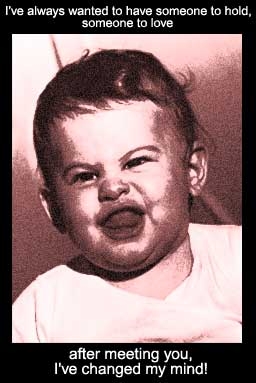
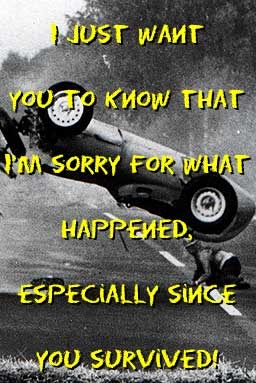
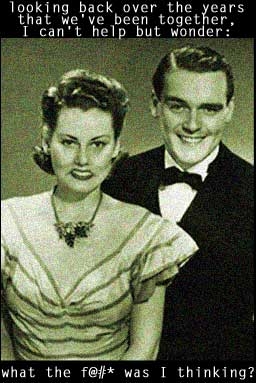
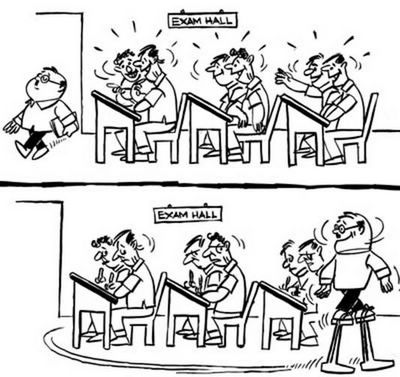








 Batman fetus
Batman fetus
 Dragon fetus
Dragon fetus
 Death fetus
Death fetus
 Emo fetus
Emo fetus
 Ninja fetus
Ninja fetus
 Poison fetus
Poison fetus